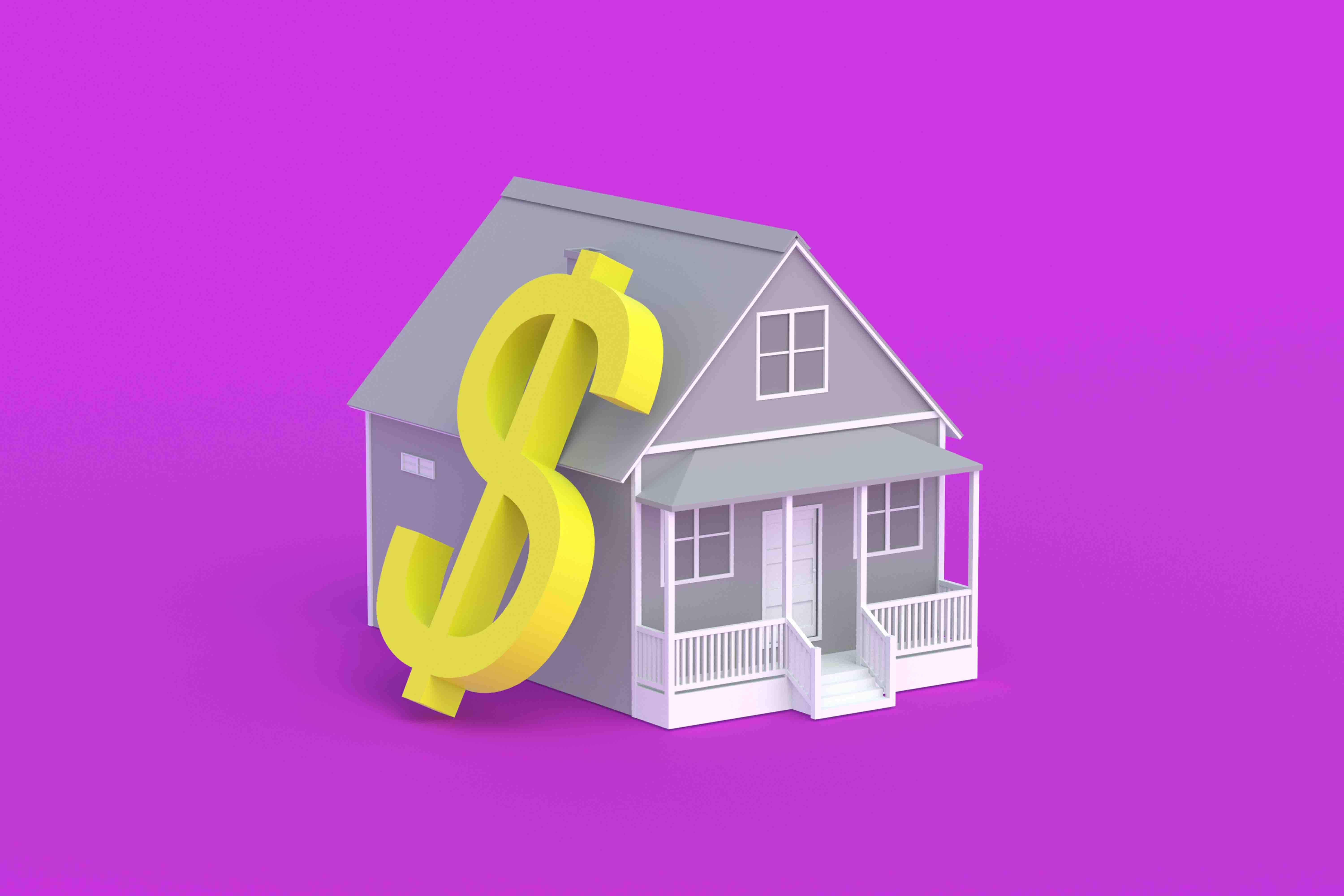3 Key Things Mortgage Lenders Are Looking for
Here’s a look at what they expect from potential borrowers.

Profit and prosper with the best of Kiplinger's advice on investing, taxes, retirement, personal finance and much more. Delivered daily. Enter your email in the box and click Sign Me Up.
You are now subscribed
Your newsletter sign-up was successful
Want to add more newsletters?

Delivered daily
Kiplinger Today
Profit and prosper with the best of Kiplinger's advice on investing, taxes, retirement, personal finance and much more delivered daily. Smart money moves start here.

Sent five days a week
Kiplinger A Step Ahead
Get practical help to make better financial decisions in your everyday life, from spending to savings on top deals.

Delivered daily
Kiplinger Closing Bell
Get today's biggest financial and investing headlines delivered to your inbox every day the U.S. stock market is open.

Sent twice a week
Kiplinger Adviser Intel
Financial pros across the country share best practices and fresh tactics to preserve and grow your wealth.

Delivered weekly
Kiplinger Tax Tips
Trim your federal and state tax bills with practical tax-planning and tax-cutting strategies.

Sent twice a week
Kiplinger Retirement Tips
Your twice-a-week guide to planning and enjoying a financially secure and richly rewarding retirement

Sent bimonthly.
Kiplinger Adviser Angle
Insights for advisers, wealth managers and other financial professionals.

Sent twice a week
Kiplinger Investing Weekly
Your twice-a-week roundup of promising stocks, funds, companies and industries you should consider, ones you should avoid, and why.

Sent weekly for six weeks
Kiplinger Invest for Retirement
Your step-by-step six-part series on how to invest for retirement, from devising a successful strategy to exactly which investments to choose.
To qualify you for the best rate, lenders will see if you pass muster in three main areas. Note that you may be able to offset weakness in one category with strength in another.
Are you a good credit risk? One of the first things lenders do is pull your credit score. The most common is the FICO score, which will be based on data from one of the three major credit bureaus (Equifax, Experian and TransUnion). Lenders use the lower of two scores, the middle of three or the average of all scores. If you have a co-borrower, they compare your scores and use the lower of the two or average them. Your debt-to-income ratio and your down payment determine the minimum required credit score for a mortgage.
Can you handle the payments? To measure “capacity,” lenders scrutinize your (and your spouse’s) job and income history and prospects, debt-to-income ratios, and savings and assets. Lenders will also look at your proposed ratio of monthly housing expenses to income. Housing expenses include loan principal and interest, real estate taxes, and hazard insurance (PITI), plus mortgage insurance and homeowners-association dues. Housing expenses generally shouldn’t exceed 25% to 28% of your gross monthly income.
From just $107.88 $24.99 for Kiplinger Personal Finance
Become a smarter, better informed investor. Subscribe from just $107.88 $24.99, plus get up to 4 Special Issues

Sign up for Kiplinger’s Free Newsletters
Profit and prosper with the best of expert advice on investing, taxes, retirement, personal finance and more - straight to your e-mail.
Profit and prosper with the best of expert advice - straight to your e-mail.
Lenders also figure your maximum debt-to-income ratio (total monthly debt payments divided by gross monthly income). That number and your down payment determine the minimum required credit score; if it’s 36% or less, Fannie Mae sets a minimum credit score of 620 with a down payment of 25% or more, and 680 with less than 25% down. To push the debt-to-income ratio to 45%, you’ll need a credit score of at least 640 with a down payment of 25% or more, and 700 with less than 25% down. Standards get tougher as you layer on more risk—say, with an adjustable-rate mortgage or investment property.
Does the value of the home justify the loan you want? “Collateral” is typically measured as loan-to-value ratio: the amount of the loan divided by the appraised value of the home you want to finance. If you could borrow all of the money, the LTV ratio would be 100%. But lenders will demand a down payment of at least 3%. That way, you have a stake that you stand to lose if you default on your loan.
Profit and prosper with the best of Kiplinger's advice on investing, taxes, retirement, personal finance and much more. Delivered daily. Enter your email in the box and click Sign Me Up.

-
 Quiz: Do You Know How to Avoid the "Medigap Trap?"
Quiz: Do You Know How to Avoid the "Medigap Trap?"Quiz Test your basic knowledge of the "Medigap Trap" in our quick quiz.
-
 5 Top Tax-Efficient Mutual Funds for Smarter Investing
5 Top Tax-Efficient Mutual Funds for Smarter InvestingMutual funds are many things, but "tax-friendly" usually isn't one of them. These are the exceptions.
-
 AI Sparks Existential Crisis for Software Stocks
AI Sparks Existential Crisis for Software StocksThe Kiplinger Letter Fears that SaaS subscription software could be rendered obsolete by artificial intelligence make investors jittery.
-
 Could Tax Savings Make a 50-Year Mortgage Worth It?
Could Tax Savings Make a 50-Year Mortgage Worth It?Buying a Home The 50-year mortgage proposal by Trump aims to address the housing affordability crisis with lower monthly mortgage payments. But what does that mean for your taxes?
-
 How to Search For Foreclosures Near You: Best Websites for Listings
How to Search For Foreclosures Near You: Best Websites for ListingsMaking Your Money Last Searching for a foreclosed home? These top-rated foreclosure websites — including free, paid and government options — can help you find listings near you.
-
 TransUnion Fined $23M For Tenant Screening, Credit Freezes
TransUnion Fined $23M For Tenant Screening, Credit FreezesGovernment charges TransUnion over illegal rental background checks and security freezes on consumer credit reports.
-
 Five Ways to Save on Vacation Rental Properties
Five Ways to Save on Vacation Rental PropertiesTravel Use these strategies to pay less for an apartment, condo or house when you travel.
-
 5 Ways to Shop for a Low Mortgage Rate
5 Ways to Shop for a Low Mortgage RateBecoming a Homeowner Mortgage rates are high this year, but you can still find an affordable loan with these tips.
-
 How to Avoid Annoying Hotel Fees: Per Person, Parking and More
How to Avoid Annoying Hotel Fees: Per Person, Parking and MoreTravel Here's how to avoid extra charges and make sure you don't get stuck paying for amenities that you don't use.
-
 Mortgage Rates and Payments Keep Rising, Creating Market Misery
Mortgage Rates and Payments Keep Rising, Creating Market MiseryMortgages Current mortgage rates and payments continue to rise resulting in buyer demand stalling and housing sentiment at low levels.
-
 Credit Cards vs Charge Cards: What Are the Differences?
Credit Cards vs Charge Cards: What Are the Differences?All you need to know about credit cards vs charge cards — differences, pros and cons.